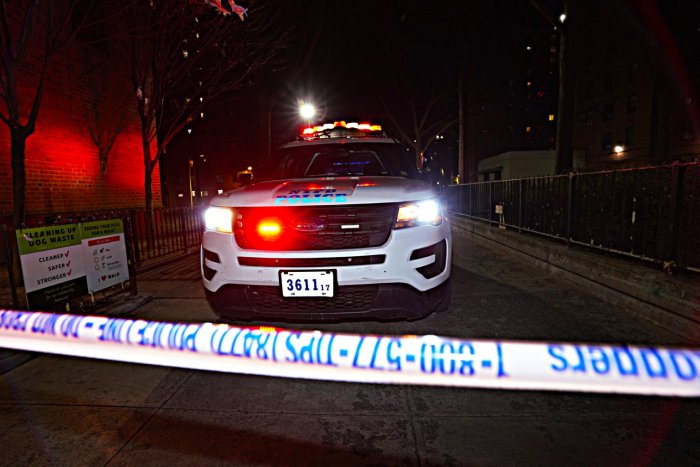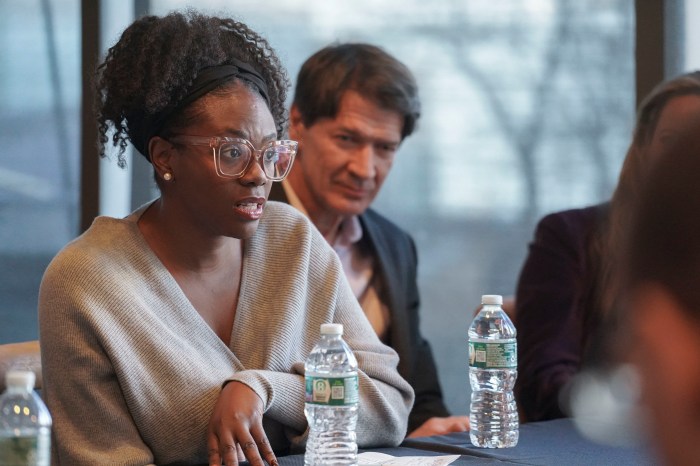By Philip Newman
The Metropolitan Transportation Authority is expected to approve a transit fare hike of as much as 50 cents to $2 Thursday despite an outcry from straphangers and government comptrollers’ claims that the MTA has not justified a raise.
Although the 23-member MTA board appeared to be leaning toward a fare increase, there was speculation that some members might be prepared to moderate the agency’s plan to shut down 177 subway token booths, including 27 in Queens.
State Comptroller Alan Hevesi, who accused the MTA of “operating in an atmosphere of delay, obfuscation and secrecy,” asked the agency to delay any decision on a fare hike until his office audits the agency's books.
Hevesi last week served subpoenas on four MTA officials to try to get information he had asked of the agency, which he accused of evasiveness. Hevesi legally has the right to oversee the MTA budget.
“We are in the processing of conducting a financial review of the MTA,” said David Neustadt, a press spokesman for Hevesi’s office. “Normally, this requires four to six weeks.”
Neustadt said an audit, which is a much more formal process, requires as long as six months.
“We had been trying to get this information from the MTA for more than two months,” Neustadt said. “They delivered it last Wednesday.”
The MTA complied with Hevesi’s request seven days after he served the subpoenas.
New York City Comptroller William Thompson’s office is also conducting an audit of the MTA.
The MTA has long maintained that it has no choice other than TO raise bus and subway fares at least to $1.75 and perhaps to $2 because of what the agency’s Financial Plan indicates is a gross budget deficit of $2.8 billion.
The plan shows that after administrative reductions and cost-saving measures such as shutting down some token booths and elimination of tokens the deficit would be cut to $1 billion. The MTA said that even then, it still must raise fares.
The MTA contends that one option would be a fare raise from $1.50 to $1.75 to be accompanied by 10 percent cuts in weekend service and 2 percent cuts in daily service. Fares would go up 10 percent on the Long Island Rail Road and Metro-North. Bridges and tunnels rolls and Long Island bus fares would also rise.
A second choice would bring a $2 subway and bus fare with an increase in MetroCard passes along with higher commuter rail fares and raises in bridge and tunnels tolls.
A third option would be a $2 fare on buses and subways with an increase in MetroCards to increase the average fare from $1.04 to $1.39 and Express Bus fares rising from $3 to $4.
Long Island Rail Road and Metro-North fares would increase by 33 1/3 percent with discounts from base fare for rail tickets bought on web or through Mail&Ride.
Long Island Bus fares would also go to $2 from $1.50 with MetroCard average fares rising from $1.04 to $1.39. Bridge and tunnel tolls would rise by 50 cents in each direction.
Again and again at the 10 public hearings the MTA conducted around the city as a legal prelude to a vote on raising the fare, the politicians, community leaders and public implored transit officials not to charge more for a ride. Many said it was nothing more than a tax that had a greatest impact on the poor.
Many questioned both whether the MTA’s financial figures were accurate and whether the agency had done all it could to avoid raising fares.
In any case, most of the MTA board members never heard the complaints in person and the chairman of the board, Peter Kalikow, attended only two such hearings. Kalikow insists, however, that he reads transcripts of all the hearings.
Some of the loudest complaints from the public have come on the MTA’s plan to shut down 177 subway token booths.
Queens Borough President Helen Marshall said an “ABC Survival Guide,” prepared by the medical director for the city Office of Emergency Management, tells subway riders to go to token booth agents for help in case of a terrorist attack .
“How can the public do that when the booth is empty?” asked Marshall, referring to the 27 booths slated for shuttering in Queens.
Reach contributing writer Philip Newman by e-mail at Timesledger@aol.com or call 229-0300, Ext. 136.



































